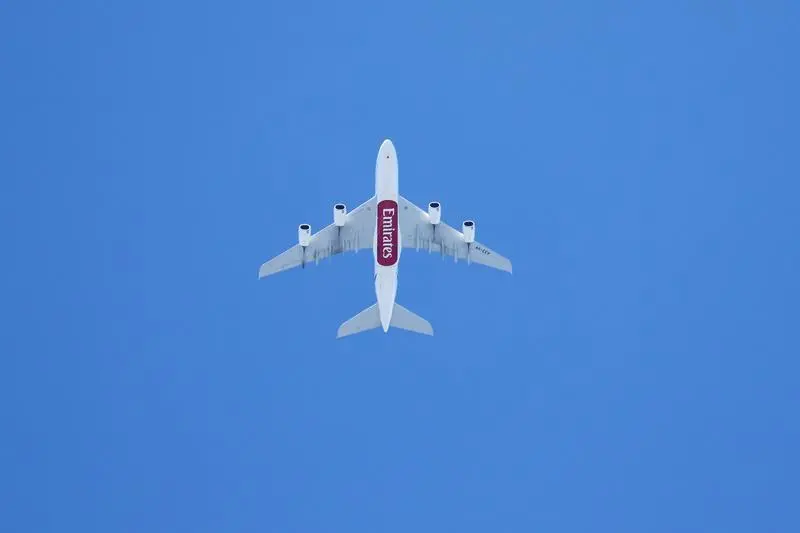PHOTO
Dubai: The company responsible for much of Airbus’ and Boeing’s electronic systems has said that the demand among Gulf carriers for avionics secured against cyber-attacks continues to be strong.
Asked if airlines such as Emirates and Etihad Airways were requesting hardened electronic systems to protect against increasingly common cyber-attacks, Patrice Caine, group chief executive officer of Thales, said: “It’s a pull and push approach: We get some requests but we are also very proactive in this domain. We are approaching Gulf carriers about how to harden their electronic systems.”
Thales is also proactive internally, the CEO said, constantly working on aviation systems that are protected against cyberattacks.
The reality of regional threats meant that this was big business for Thales, Caine added.
Cybersecurity firm FireEye warned in September that Iran was targeting Saudi Arabia aviation firms and US aerospace contractors.
“Cybersecurity is now worth half-a-billion euros worldwide for us in turnover every year,” said Caine, who has led the French defence contractor Thales since 2014.
Last year, Thales acquired Vormetric, a secure data management firm, for $400 million. This isn’t a recent development however, according to Caine.
“We’ve had in-depth discussions, and work, with all the major carriers of the region for several years now,” he said, adding that cybersecurity has been the subject of discussions which began several years ago.
Cybersecurity in aviation in the production of avionics could not be compartmentalised, however, Caine said. “Firstly we discussed the issue, and then worked with Airbus and Boeing [to affect] a sea change.”
The seriousness of the threat to airlines was highlighted in a recent report published by the Atlantic Council, a Washington DC-based think tank, and Thales.
The increasing use of new technologies in the movement towards automation has yielded efficiencies and enhanced the customer experience, the reported stated, “yet it has also inadvertently created vulnerabilities for exploitation.”
As a central component of commerce, trade and transportation infrastructure, the aviation industry is indispensable for the global economy, and as such, it continued, “the consequences of failure would carry direct public safety and national security implications.”
According to the study, the aviation industry will likely experience cybersecurity challenges similar to other industries that have embraced the “digital revolution,” potentially impacting stock market values, stability, and national gross domestic product.
All told, the report says, this makes securing and protecting the connected aviation world a critical element of national security.
Asked if airlines such as Emirates and Etihad Airways were requesting hardened electronic systems to protect against increasingly common cyber-attacks, Patrice Caine, group chief executive officer of Thales, said: “It’s a pull and push approach: We get some requests but we are also very proactive in this domain. We are approaching Gulf carriers about how to harden their electronic systems.”
Thales is also proactive internally, the CEO said, constantly working on aviation systems that are protected against cyberattacks.
The reality of regional threats meant that this was big business for Thales, Caine added.
Cybersecurity firm FireEye warned in September that Iran was targeting Saudi Arabia aviation firms and US aerospace contractors.
“Cybersecurity is now worth half-a-billion euros worldwide for us in turnover every year,” said Caine, who has led the French defence contractor Thales since 2014.
Last year, Thales acquired Vormetric, a secure data management firm, for $400 million. This isn’t a recent development however, according to Caine.
“We’ve had in-depth discussions, and work, with all the major carriers of the region for several years now,” he said, adding that cybersecurity has been the subject of discussions which began several years ago.
Cybersecurity in aviation in the production of avionics could not be compartmentalised, however, Caine said. “Firstly we discussed the issue, and then worked with Airbus and Boeing [to affect] a sea change.”
The seriousness of the threat to airlines was highlighted in a recent report published by the Atlantic Council, a Washington DC-based think tank, and Thales.
The increasing use of new technologies in the movement towards automation has yielded efficiencies and enhanced the customer experience, the reported stated, “yet it has also inadvertently created vulnerabilities for exploitation.”
As a central component of commerce, trade and transportation infrastructure, the aviation industry is indispensable for the global economy, and as such, it continued, “the consequences of failure would carry direct public safety and national security implications.”
According to the study, the aviation industry will likely experience cybersecurity challenges similar to other industries that have embraced the “digital revolution,” potentially impacting stock market values, stability, and national gross domestic product.
All told, the report says, this makes securing and protecting the connected aviation world a critical element of national security.
By Ed Clowes
© Al Nisr Publishing LLC 2017. All rights reserved. Provided by SyndiGate Media Inc. (Syndigate.info).





















